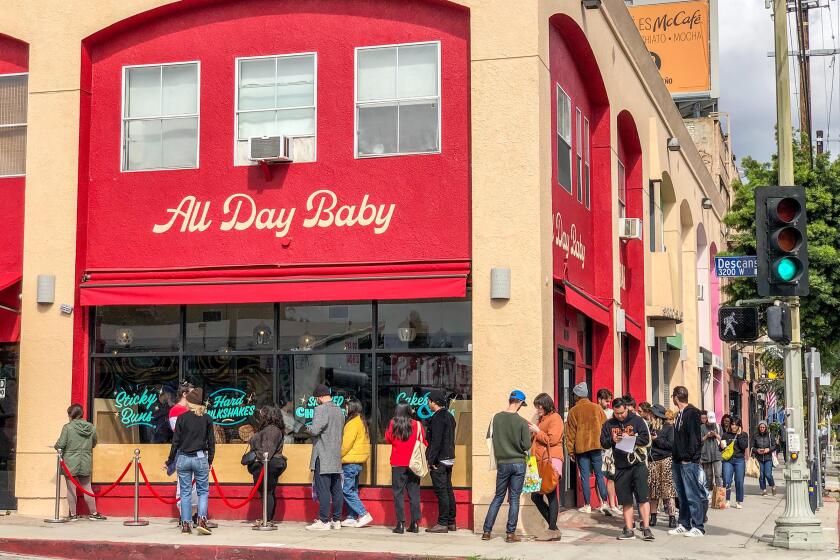Photos: It’s melon season
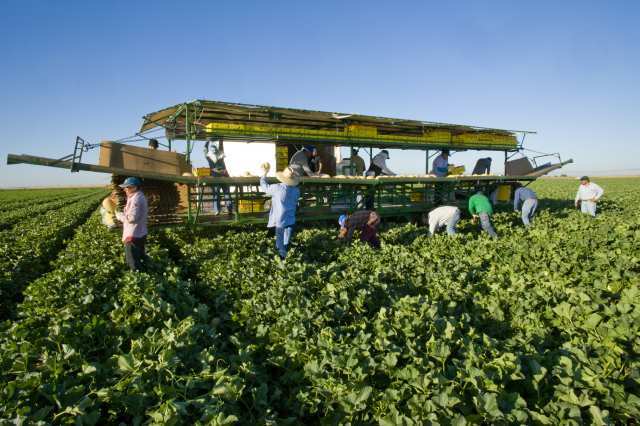
Hami melon harvest at Sandstone Marketing’s fields in Huron, on the west side of the San Joaquin Valley. Workers cut ripe melons off the plant and place them on a slowly advancing harvest platform, where the fruits are brushed, if needed, and packed in boxes. (David Karp / For The Times)
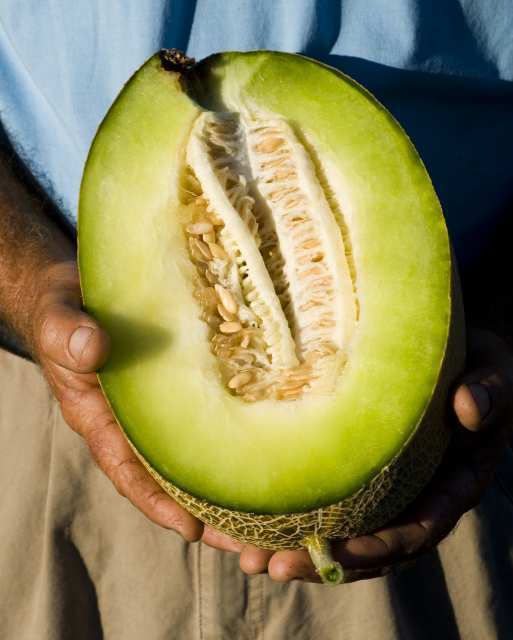
Dennis Stowell holds a gold-skinned, green-fleshed Kharbuza Afghan melon at his Tom King Farms in Ramona, northeast of San Diego. (David Karp / For The Times)
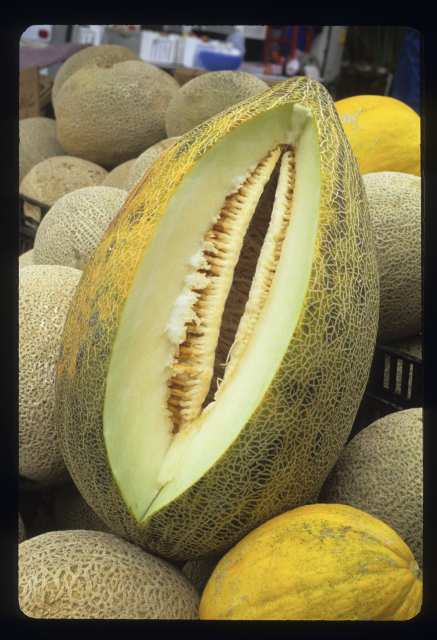
Compared with regular cantaloupes and Canary melons, this Askalani melon (marketed as a “Kharbuza” or “Kondozi” melon), originally from the Aliabad district, Kunduz province, in northern Afghanistan, is much larger, crunchier and sweeter. It’s grown by Mohammed Saleh of Kunduzi Farm in Vernalis, Calif. (David Karp / For The Times)
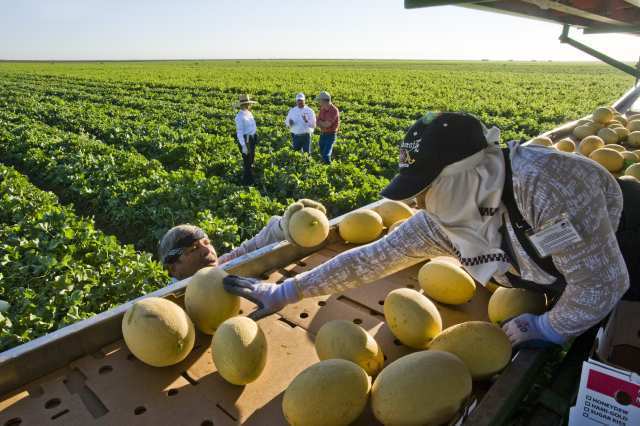
Workers place melons on a slowly advancing platform at Sandstone Marketing’s fields in Huron. Gilberto Carrasco, Milas Russell Jr. and Russell’s wife Diana are in the background. (David Karp / For The Times)
Advertisement
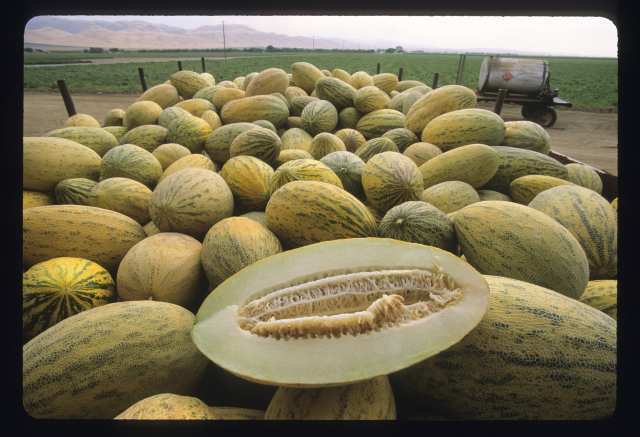
Askalani melons, originally from the Aliabad district, Kunduz province, in northern Afghanistan, are marketed as “Kharbuza” and “Kondozi” melons. They’re grown by Mohammed Saleh of Kunduzi Farm in Vernalis, Calif. (David Karp / For The Times)
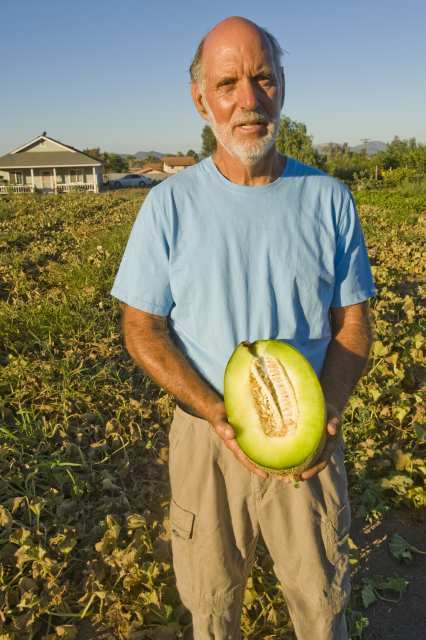
Dennis Stowell with a gold-skinned, green-fleshed Kharbuza Afghan melon in the exotic melon patch at his Tom King Farms in Ramona, northeast of San Diego. (David Karp / For The Times)
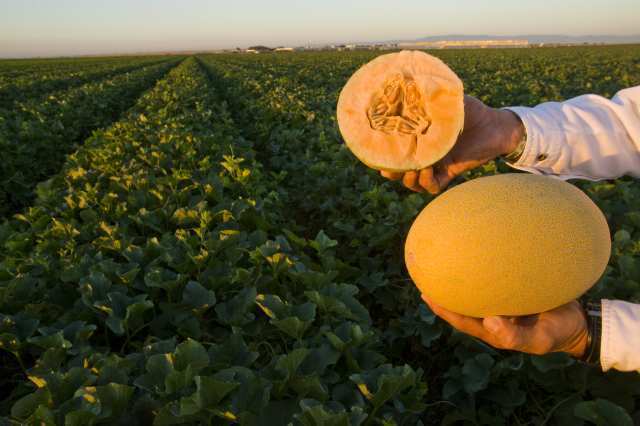
A closer look at a Hami melon. (David Karp / For The Times)
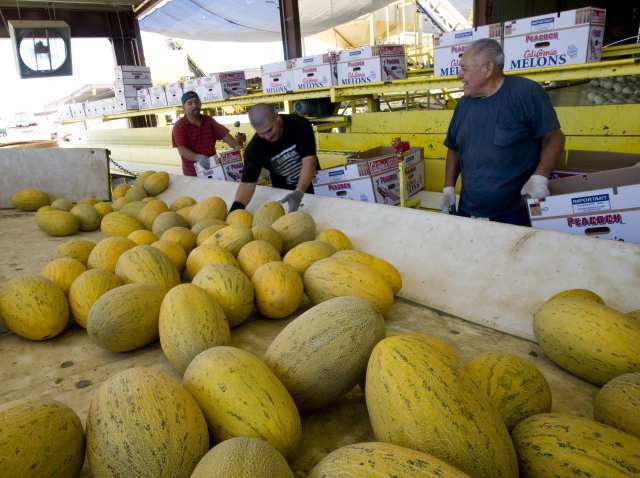
Packing Hami melons grown by Turlock Fruit Co. (Steve Smith) in Firebaugh, west of Fresno. (David Karp / For The Times)
Advertisement
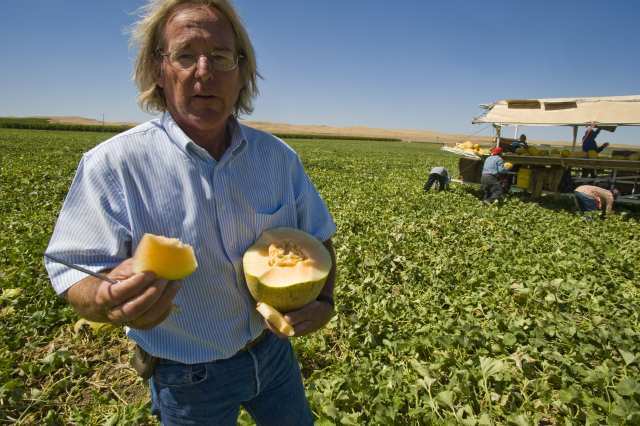
Chris Couture discusses Hami melons during harvest at Couture Farms in Kettleman City, south of Huron, on the west side of the San Joaquin Valley. (David Karp / For The Times)
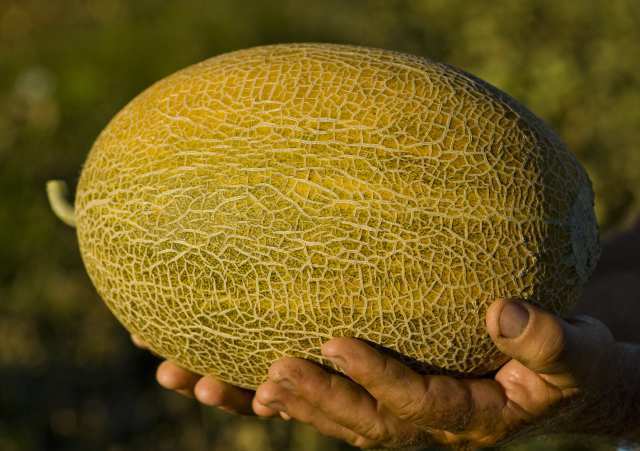
A gold-skinned Kharbuza Afghan melon grown by Dennis Stowell of Tom King Farms in Ramona, northeast of San Diego. (David Karp / For The Times)
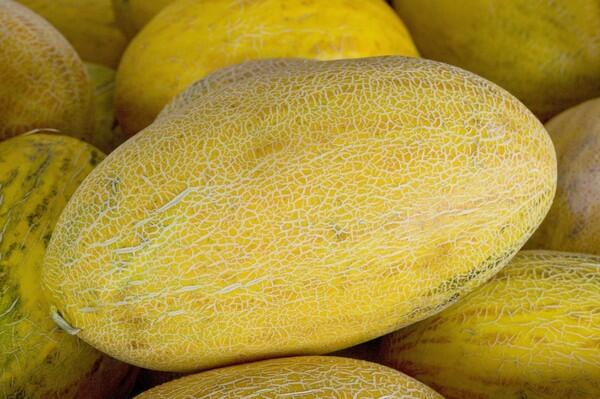
The Askalan variety of Afghan melons originated in Kunduz province, in northern Afghanistan, and are marketed as “Kharbuza” and “Kondozi” melons. These were grown by Mohammed Saleh of Kunduzi Farm in
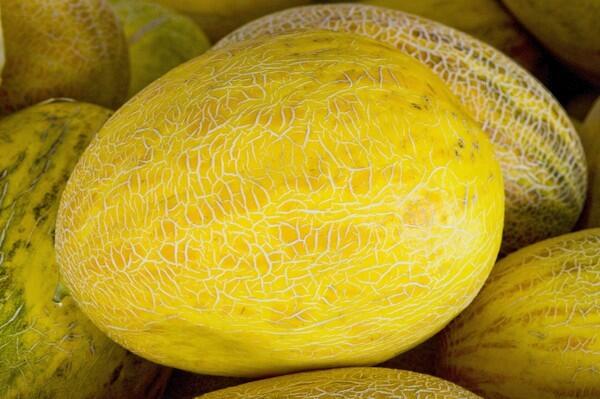
The colors, shapes and hues vary. (David Karp / For The Times)
Advertisement
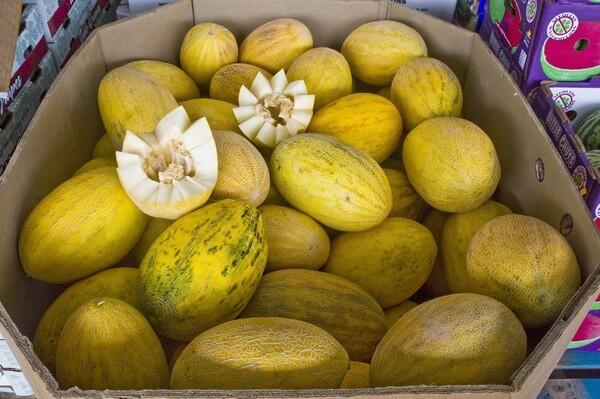
More Afghan melons at the Cardile Bros. stand. (David Karp / For The Times)




